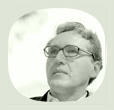
Boris Groys (1947, Berlin) studied philosophy and mathematics at the University of Leningrad. He worked as scientific assistant at various colleges between 1976 and 1981, including the Institute of Structural and Applied Linguistics at the University of Moscow.
Theoretical and art critic, an active member of the circles of intellectuals and unofficial artists of Leningrad and Moscow under the Soviet regime, had to emigrate in 1981 to Germany, where he began to publish their work and work as a teacher at the University of Münster.
Since 1994 he is Professor of Philosophy, Theory of Art and Media in Karlsruhe Hochschule für Gestaltung. Member of the International Association of Art Critics (AICA), was Rector of the Academy of Fine Arts in Vienna and has been visiting professor at universities in Philadelphia, Pennsylvania, and UCLA, among others, and Global Distinguished Professor of Russian and Slavic Studies at New York University.
Among its production, largely poured into other languages, include, in addition to their contributions to magazines and catalogs, Gesamtkunstwerk Stalin (1988), Kunst aus Moskau Zeitgenössische (1991), Die Erfindung Russlands (1995), Logik der Sammlung and Kunst-Kommentare (both 1997) or Topologie der Kunst (2003), as well as audio CD in Namen des Mediums (2004) and Das Kommunistische Postskriptum (2006). He edited, among other texts, the writings of the Russian avant-garde in Nullpunkt Am. Positionen russischen der Avantgarde (2005). In 1991 and 1996 he published, respectively, two books of conversations with Ilya Kabakov (Die Kunst des Fliehens and Installation der Kunst). Along with his work as an essayist, art critic and curator (among others, the celebrated ". Traumfabrik Kommunismus visuelle Die Kultur der Stalinzeit", Frankfurt, 2004), Boris Groys has also worked as an artist: his film essays and facilities are as Iconoclastic Delights (2002) and The immortal Bodies (2008). After On the New (2005).




